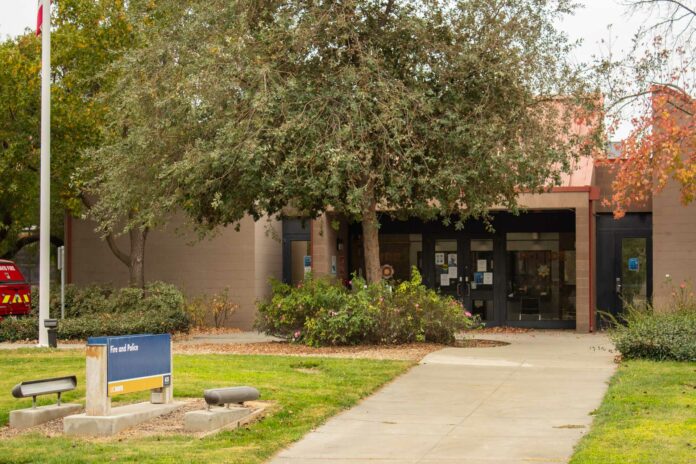UC Davis police are not enforcing COVID-19 guidelines, and OSSJA is taking a ‘graduated response’ to reports of violations
As fears of a widespread outbreak on campus have decreased, the UC Davis Police Department has taken an educational approach to disperse gatherings during the pandemic, and the Office of Student Support and Judicial Affairs (OSSJA) has avoided affecting students’ standing for first-time offenders.
UC Davis Police Chief Joe Farrow’s approach to gatherings on the campus has been less about enforcement and more about encouraging positive behaviors.
“We always thought that we should kind of be advisors, the educational arm of things,” Farrow said. “So we bought a bunch of masks, hand sanitizers, all that sort of thing.”
According to an email response from the OSSJA Director Don Dudley, the university responds to all reports of gatherings that violate the university guidelines, and they are taking a graduated approach in providing discipline.
“Most first-time incidents result in a disciplinary outcome that does not affect a student’s standing,” Dudley said via email.
UC Davis currently allows for gatherings of up to 16 people with social distancing outdoors and not between more than three households, according to the campus ready webpage.
Annie Andrews, a third-year philosophy and psychology double major, said she was the host of a game night off-campus that ended up having more people than originally intended, around 30.
She said she had planned to only have a couple of people over.
“That turned into a lot bigger than we thought, like a lot more people showed up,” Andrews said.
According to Farrow, the Davis Police Department deals with any complaints of violations to state and county guidelines for students off campus. After multiple requests for comment, Davis Police Chief Darren Pytel did not respond.
The total self-reported positive cases since March have been 117.
Still, Andrews said she wasn’t concerned about the spread of COVID-19 from the gathering, and she said most people there were wearing their masks, except when drinking.
“Most of the people who showed up were from student housing, so they’ve been tested before,” Andrews said. “We didn’t hear anything about people being sick when they showed up or left, so it wasn’t too much of a worry for us.”
According to the UC Davis COVID-19 Dashboard, there have been three asymptomatic cases between Nov. 1 and Nov. 7.
At the beginning of the pandemic, Farrow said the UC Davis police department received a lot of calls, but that has gone down considerably since the rules took effect.
“I think people realized it’s not necessarily a police call, it’s not really something that the police deal with,” Farrow said. “So our calls have gone way down for us; In fact, we very seldom receive a call.”
Farrow said he was encouraged by the way students on campus acted during Halloween. He had originally prepared himself for more calls.
“I think Halloween was a good example of a lot of people at this university taking things seriously,” Farrow said. “I think they tried really hard to social-distance, while at the same time enjoy themselves in some aspect.”
Students who violate campus ready guidelines will be required to get tested for COVID-19 weekly for four weeks at the ARC.
“I feel safe going to campus because I know it’s an institution,” Andrews said. “They have to keep their students safe, so they are going to put up decent regulations.”
For Farrow, he said it’s important to not grow too comfortable and let standards slip.
“I think what we are all trying to guard against is complacency,” Farrow said.
Written by: Kathleen Quinn — campus@theaggie.org









